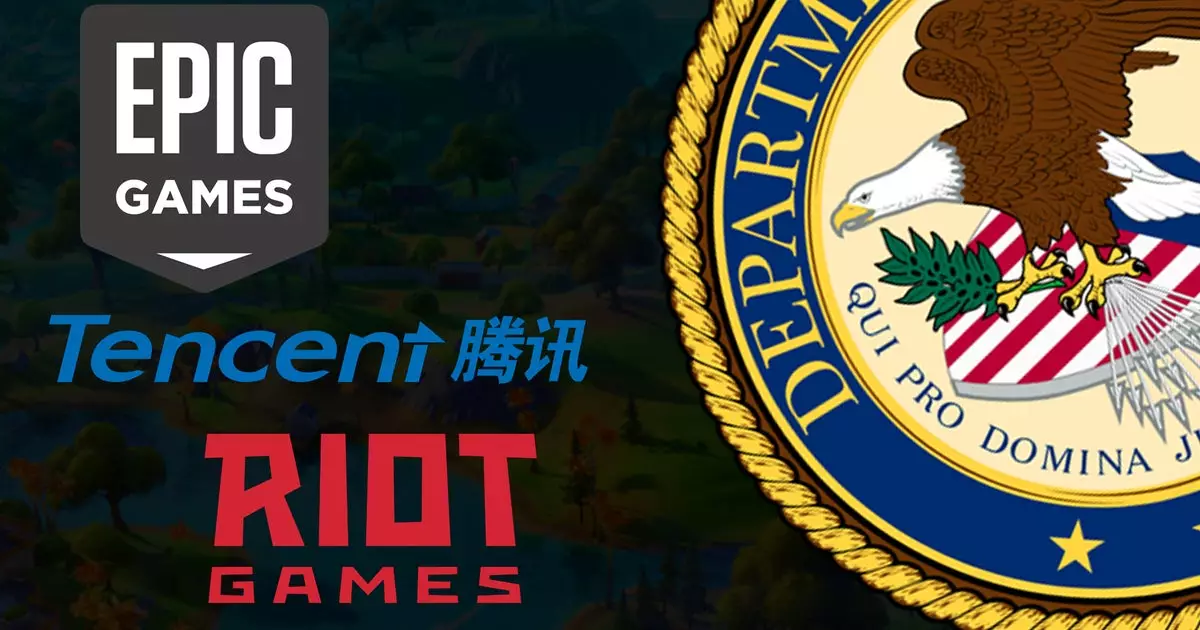The recent resignation of two board members from Epic Games sheds light on the intricate relationship between corporate governance and antitrust laws. These developments underline the ongoing scrutiny that high-stakes gaming companies face as they navigate the balance between growth and regulatory compliance. The situation raises critical questions about accountability, corporate influence, and the potential for monopolistic behavior within the fast-evolving video game industry.
The U.S. Department of Justice (DoJ) has taken a keen interest in Epic Games’ boardroom practices, particularly concerning the presence of directors who are also affiliated with Tencent, a considerable player in the gaming sector with ownership of Riot Games. This scenario created a conflict of interest, as Tencent’s influence over Epic Games could raise significant concerns within the realm of antitrust regulation. The situation brought to mind the implications of the Clayton Act, which explicitly prohibits the overlapping service of directors on boards of competing companies, emphasizing that such affiliations might lead to monopolistic behavior that harms market competition.
The resignations of Ben Feder and David Wallerstein, both of whom held prominent positions within Tencent, could be seen as a response to legal pressures more than a voluntary decision based on corporate ethics. This development is essential not just for Epic Games and Tencent but for the broader industry as it sets a precedent regarding how intertwined corporate relationships must be managed to comply with antitrust laws.
The direct impact of these resignations may not be immediately evident to consumers; however, the implications resonate within the corporate sphere. The DoJ’s investigation serves as a cautionary tale for other companies in the video game industry and beyond. It highlights that not only do businesses need to focus on expanding their influence and market share, but they must also remain vigilant regarding legal frameworks designed to protect competition.
With Tencent’s recent agreement to amend its shareholder arrangement with Epic Games, the new rules stipulate that Tencent can no longer appoint directors to Epic’s board. This shift alters the power dynamics within Epic, compelling it to operate with more independence from its largest shareholder. The move could foster a healthier competitive environment, allowing Epic to make decisions that are in its best interest without the pressure of Tencent’s corporate agenda overshadowing its strategic vision.
The Epic Games-Tencent relationship is emblematic of a broader trend in corporate governance where cross-ownership and influence among competing companies can lead to potential antitrust violations. As the video game industry becomes more interconnected—with mergers, acquisitions, and major investments—it will be crucial for stakeholders to ensure that their governance models adhere to legal requirements designed to foster fair competition.
Antitrust laws serve a fundamental purpose. They protect the interests of consumers and smaller businesses by preventing large corporations from establishing monopolistic practices. The diversity and innovation seen in the gaming industry are often the products of competition; without it, creativity stifles, and consumer choice diminishes. Therefore, the actions following the DoJ’s investigation may serve as a precautionary measure not just for Epic Games but for the entire landscape of gaming giants.
Moving forward, the future of Epic Games will likely be shaped by a renewed focus on legal compliance and a possibly more streamlined governance approach that prioritizes transparency. The boardroom reshuffle might signal to investors and consumers alike that the company is committed to operating ethically and responsibly in the face of scrutiny.
As we watch Epic Games navigate these waters, it will be critical to observe whether other companies will adopt similar practices. The litmus test will be how well these corporations adapt to regulatory pressures while continuing to innovate and compete fiercely. In the end, this episode serves as an important reminder: in the realm of business, maintaining a competitive landscape is not merely a legal obligation but a crucial ingredient for sustained growth and innovation in the rapidly changing video game industry.

